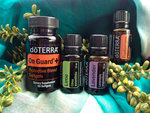

The words aromatherapy and essentials oils tend to be used interchangeably. In fact, aromatherapy is more often considered the professional term of qualified individuals utilizing essential oils in treatments. Furthermore, aromatherapy is sometimes considered inaccurate given that some essential oils do not have a pleasant odor and there’s more than one way to use these oils.
Essential oils are the very essence of a plant. Much like how alcohol is flavored by distilling the essence of, say, juniper berries to make gin, so too essential oils are extracted from the leaves, stem, flower and so forth. The most popular method is steam distillation, though the expression method, similar to grating the peel of an orange for its zest, that is often used for citrus.
It’s important to note that not all plants produce essential oils and some plants produce toxic oils. Buying from a reputable manufacturer will ensure that a person receives quality oils created for optimal usage. Margie Dow, independent product consultant for doTerra-Essential Oils, recently shared an explanation of the top three less expensive essential oils in their line.
“Lemon is great for detoxing, calming, boosting immune system,’’ Dow said. “Peppermint is great for tummy, headaches. It’s cooling, like for women who are going through menopause. It can be put on sore places. Lavender is great for soothing (even burns).”
As far back as Egyptian times, people have been using essential oils. Frankincense and myrrh are noted in Biblical references. Of course, the Chinese have employed the practice of medicinal herbs for thousands of years, so it’s not surprising to find in research that aromatic plants were widely used, as well. Fast forward to 1910, and it was a French chemist by the name of Rene Maurice Gattefosse who severely burnt his hand, applied undiluted lavender oil and noted immediate pain relief and his hand healed without infection or scarring. As a result, essential oils were used to treat soldiers in WWII.
Similarly, it was due to a bout of her own excruciating pain brought on by a later-diagnosed ruptured disc in her neck that Dow became a believer in essential oils and began selling the doTerra line. She also uses two drops of lemon oil in a glass of water every morning as part of her own detoxification routine. Lemon routinely places high on super food lists for its antibacterial and cholesterol-lowering properties.
The advantages associated with essential oils appear endless. Lavender, as previously noted, is a calming oil. It can be used for anything skin-related and to relieve aches and pains. Tea tree is commonly used for its antibacterial and antifungal properties. Ginger is used to fight nausea and inflammation. Basil can actually be used as a natural insect repellent.
Aromatherapy accurately suggests essential oils are used through scent. The benefits can also be enjoyed by infusing lotions and lip balms or applying oils directly to the skin in the recommended dosage. There are mixed opinions regarding ingestion of essential oils.
“What I know about doTerra at this point is that every batch is tested by external, unaffiliated companies,’’ Dow said. “They stand by their promise that their oils are certified pure therapeutic grade. Some of the oils don’t recommend taking them internally because, if you have epilepsy (for instance), it will trigger epilepsy so they tell you which ones can be taken internally and they stand by that. I trust the heart of the company. They’re very genuine. They want people well.”
Other applications of essential oils go beyond human. Cats, dogs, cows and goats are a few animals that have benefited from the medicinal and calming properties of essential oils. Animal doses should be reduced to approximately half of what a human would use, but it’s always recommended to confirm with a professional consultant. Things like fleas, kennel cough and hot spots can be treated with essential oils. Dow suggested that to calm a dog with anxiety issues simply take lavender oil, rub it between the fingers and put it between the dog’s pads, tops of their paws and backs of their ears. They’re then breathing it in and will probably ingest a bit of it by licking the area.
Due to their antibacterial and antifungal properties, essential oils are the perfect natural substitute for a lot of store-bought cleaners. Tea tree makes another appearance here due to its ability to disinfect, fight mold and have a fresh scent. Lavender and rosemary are both recommended for use as a homemade wood cleaner. Pine or cinnamon can be used to clean kitchen countertops.
“You can use the oils in your house and avoid the toxic stuff you find in the stores,” Dow said.
For more information on doTerra-Essential Oils, contact Margie Dow at (360) 600-7160 or online at www.mydoterra.com/margiedow.